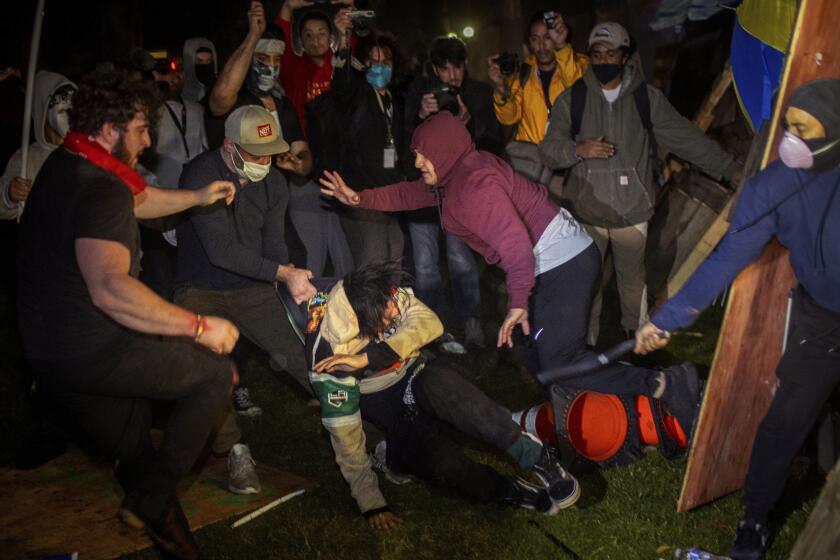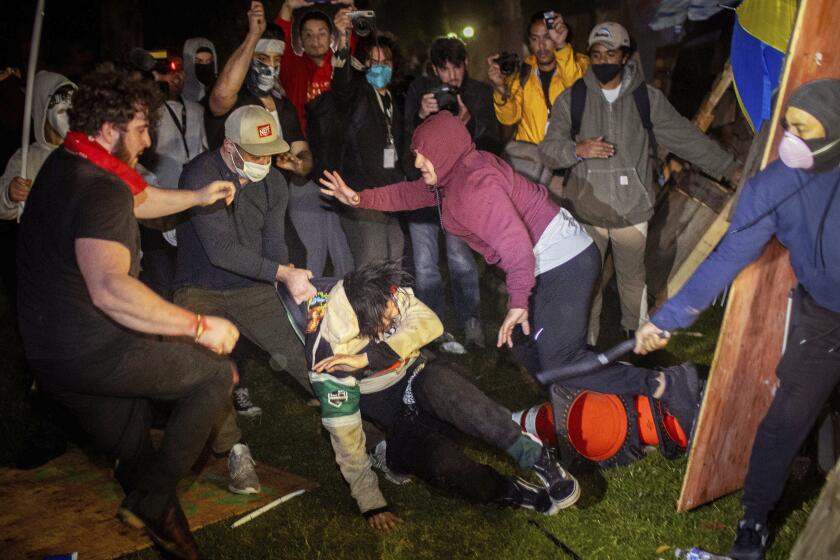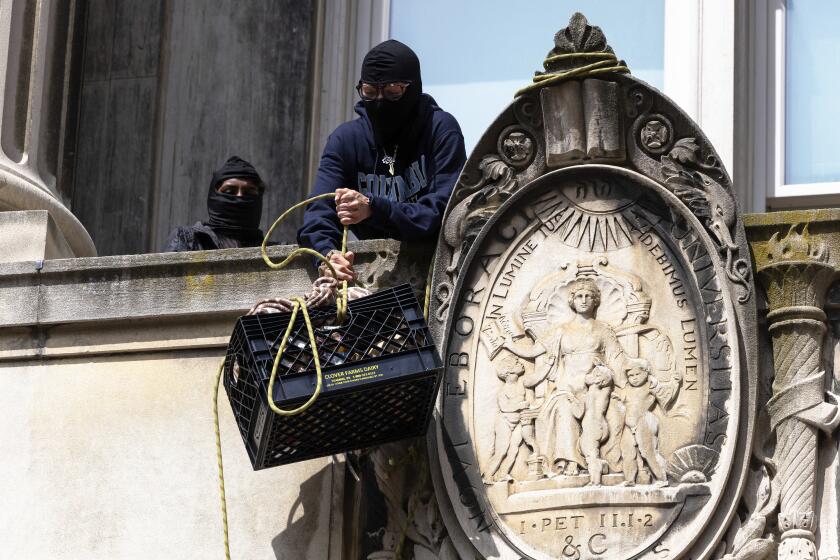Zero-Tolerance Policy Challenged
Even Daniel Bautista’s parents agreed he should have been suspended for bringing a knife to school, although they believed their 13-year-old son when he said he had forgotten it was in his pants pocket.
But Jorge and Rose Bautista said the eighth-grader did not deserve to be removed from Sycamore Canyon School in Thousand Oaks.
Like many parents nationwide who are questioning zero-tolerance weapons laws aimed at preventing school violence, they took on their local school board, and requested to do so in a public hearing.
Their fight, aired Tuesday afternoon before dozens of parents and officials with the Conejo Valley Unified School District, offers an unusual glimpse at what normally is handled as a confidential matter.
“I felt that Daniel unintentionally took the knife to school; he didn’t show it to anyone, he didn’t threaten anyone,” Rose Bautista told school board members. “I felt Daniel was a good kid who made a mistake.”
They also have filed a discrimination complaint with the U.S. Department of Education’s Office of Civil Rights, saying Daniel’s Latino heritage explains why his punishment did not match that of another Sycamore Canyon student, a white boy who was suspended last year for five days for having a small knife.
School officials deny any racial prejudice, noting that the other boy’s knife did not qualify as a weapon under state law, and that most of the students expelled on similar charges were white. Bautista’s knife was considered a weapon because it had a locking blade.
The school board ordered Daniel to attend another middle school until Thanksgiving break, after which he could return to Sycamore Canyon. His expulsion will be expunged from his record if he stays out of trouble.
“I think this is a very, very lenient punishment,” board member Dorothy Beaubien told the packed hearing. “Truly, I think Daniel is a good kid, we all agree. But the fact is, he broke the law in a sense.”
Zero-tolerance policies are increasingly coming under fire by parents and community leaders who say they leave no room for individual judgment.
The policies became prevalent after 1994, when the federal government mandated that all schools receiving federal funds expel any student bringing a firearm onto campus. Many states and school districts enacted tougher standards in the wake of school shootings, such as the 1999 Columbine High School massacre in Colorado.
The California Education Code mandates expulsion for students caught with knives or other dangerous objects, although it offers leeway in how principals can apply punishment.
Researchers at the Civil Rights Project at Harvard University and the Oakland-based Applied Research Center have concluded that the get-tough policies have swept up children who pose no threat to safety. Statistically, punishment also has fallen disproportionately on minorities, they concluded.
It’s not just minority students and parents who are concerned. In the Rowland Unified School District in L.A. County, the parents of 17-year-old Danielle Brinkman continue to push for her reinstatement to Rowland High, where she was an honor student and choir member. A part-time Albertsons employee, she threw on her work pants the morning of June 1 and forgot a pocket knife was attached.
Her suspension ended a perfect attendance record. Made to attend a neighboring high school this semester, she can return to Rowland High for the last half of her senior year, although her parents will request earlier reinstatement.
“This kid has worked so hard, but now they’ve labeled her a danger and a threat,” said Anita Brinkman, who belongs to a nationwide network of parents opposed to zero-tolerance policies. “People need to know how out of control zero tolerance is.”
Rowland school district Supt. Maria G. Ott said confidentiality rules prevented her from discussing the case. She said the district does not apply a zero-tolerance policy, but weighs every case individually.
Richard Simpson, assistant superintendent of instruction for the Conejo Valley Unified School District, said Daniel Bautista’s case demonstrates similar flexibility. The punishment handed down Tuesday was among the most lenient he has seen in two decades of conducting disciplinary hearings, he said.
If Daniel had turned in the knife as soon as he found it Sept. 13, he likely would have gotten off with a five-day suspension, Simpson told the board. Instead, the youngster admitted Tuesday to trying to hide it all day after discovering it in his pocket. The plan backfired when it slipped through his gym shorts and landed in front of a physical education teacher.
As for question of unequal treatment, Simpson said the other student last year had a knife that didn’t meet the education code or penal code definition for a weapon. He also noted that most of the 23 students expelled in the last three years for possession of a knife were white.
After the board made its decision, Jorge and Rose Bautista huddled with Daniel, telling him to focus on the scores of people who wrote letters on his behalf and the neighbors and family friends who defended his character at Tuesday’s hearing.
“This is what people think of you, they know you’re a good kid,” Rose Bautista told her son. “This was a mistake. Don’t let it break your spirit.”
More to Read
Start your day right
Sign up for Essential California for news, features and recommendations from the L.A. Times and beyond in your inbox six days a week.
You may occasionally receive promotional content from the Los Angeles Times.






